09 June 1916
SKIPTON SOLDIER’S DEATH IN JOHANNESBURG
News has been received by Mr. and Mrs. George Leat, of Pendle Street, Skipton, that their eldest son, Pte. George Leat, of the 9th Sportsman’s Regiment, died on April 28th in the Germiston Hospital, Johannesburg, from black water fever. The news was conveyed in a letter sent to Pte. Leat’s wife. The deceased, who was 33 years of age, went out to Johannesburg about 12 years ago to join Baden Powell’s Mounted Police, and he had nearly served his three years there. He was formerly employed at the Skipton Co-operative Stores. Mr. and Mrs. Leat only a short time ago lost another of their sons, Lance-Corpl. Thos. Leat, who was attached to the Berkshire Regiment. It will be remembered that the parents received a telegram from the Military Authorities intimating that Lance-Corporal Leat was in hospital in France, suffering from a gunshot wound in the chest, and stating that they could see him if they wished to make the journey. About half an hour afterwards a second telegram was received informing them that their son had succumbed to his wounds. Pte. Leat was one of four brothers serving. Of the two remaining sons, one is serving with the Anzacs, who has returned home from the trenches in France since the news of his brother’s death in Johannesburg had been received, while the other brother is engaged as a stoker on His Majesty’s ship Exmouth.
01 June 1917
LEATT – May 29th, at 43, Pendle Street, Skipton, George Leatt, aged 68.
[Father of Pte. George Leatt, Pte. James Leatt and L/Cpl. Tom Leatt.]
19 October 1917
SKIPTON CASUALTIES
THREE BROTHERS NOW KILLED
Information has been received that Pte. James Leatt of the New Zealand Forces, son of Mrs. Leatt, of Pendle Street, Skipton, was killed in action on October 4th. In a letter to the deceased soldier’s mother, Captain Gordon Coates, of the Auckland Company, New Zealand Expeditionary Force, states:– “It is with great regret that I write to console with you in the loss of your brave son. He was killed during our advance on the 4th inst., and it was a great pity that he was not spared to enjoy the fruits of the success to which he so ably contributed. It is a time of self-sacrifice, and right nobly your son respond to the call. He died as you could wish him to die, like a soldier and a man, and you have reason to be proud of him. I just wish to extend to you the sympathy of your son’s comrades in the company in your time of sorrow. Mrs. Leatt has also received a letter which is signed by Pte. E.W. Johnstone and Pte. H. Waldron, and which states:– “Jim was a pal of mine. We went into the trenches on the night of October the 2nd, and went over the top at 6 o’clock on the Monday morning of the 4th. This was where your son died for his county, and I must say that he suffered no pain. Shortly after we reached our objective, and I came back to find him but evidently another enemy shell must have struck him. Jim was well-known throughout the battalion as a good soldier, and his gap will be felt by all. It is very hard for us to have to sit down to write of our men who have gone before.” Originally Mrs. Leatt had three sons in the army, one in the navy, and one on munitions. The three who were in the army are now dead. Pte. George Leatt, the eldest son and a married man, died in German East Africa, and Pte. Tom Leatt died from wounds received in action. The son serving in the navy is Pte. Harry Leatt. Pte. James Leatt, who was 33 years of age, went out to Canada and afterwards to New Zealand to join another brother. He joined up just before Christmas, 1914, and went to the Dardanelles the June following, then to Egypt, and afterwards to France. He was wounded on the Somme. As a boy he was apprenticed to Mr. Swire, newsagent, Swadford Street, Skipton.
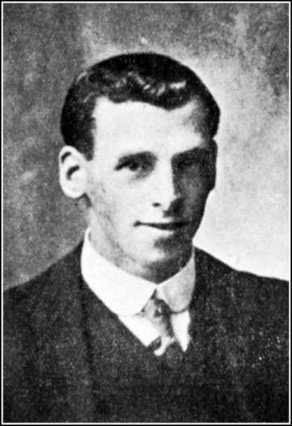
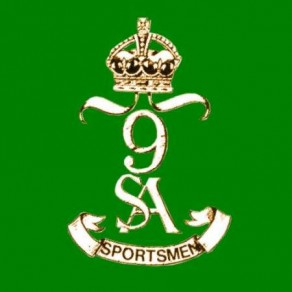


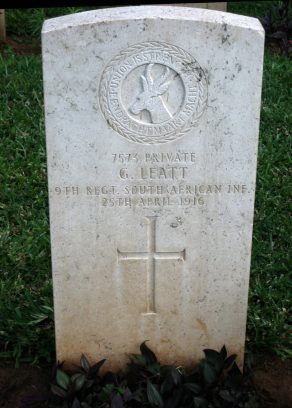
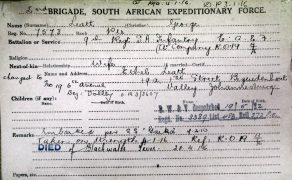
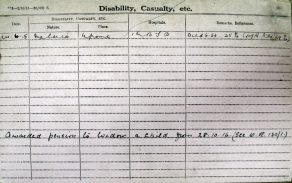





No comments yet.